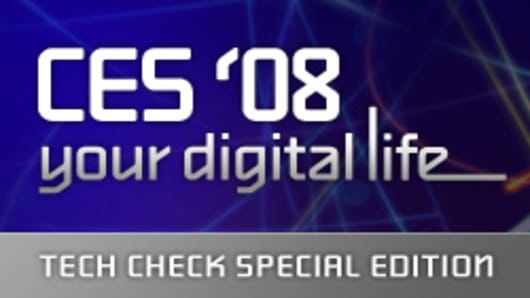Intel will get in touch with it's "mid" tonight -- as in mobile internet device -- a key initiative that CEO Paul Otellini talked to me about exclusively earlier today.
Otellini is really finding his stride as Intel's leader after what appeared to be a shaky start. And while Intel's shares have suffered a one-two downgrade punch last week because of worries about an economic downturn, Otellini brushed those setbacks aside.
"Perhaps what you have to remember is that it's a big world out there. 75 percent of Intel's sales are non-US," Otellini told me.
"There seems to be no signs of a global (recession) out there. You look at China, you look at India, you look at Brazil, you look at Russia, Eastern Europe, they are all growing very very rapidly. And that's where much of the growth for the computer industry has been for some time and is now representing a large percentage of the growth for consumer electronics. So even if there is a stall in the U.S., I don't think it will impact this transition," Otellini said.
And that transition is Intel's move towards a new class of digital device, the so-called Mids. Intel will unveil a family of sixteen microprocessors Tuesday night, all smaller than typical chips, and all very power efficient. These new devices, Otellini tells me, could represent significant new revenue streams for the company.
I asked him whether the consumers' move away from the PC toward these new devices was a concern, and he said no. Consumers are clamoring for more power in smaller devices, something Intel will be in position to take advantage of with this new class of chips.
Computers became personal, and then PCs became the net, he said. Now these connected devices are becoming personal again. You'll touch them and talk to them and interact with them in a much more personal way, something Bill Gates also addressed in his keynote Sunday.
And just as Microsoft is positioning itself here, so is Intel .
Otellini's speech tonight isn't about hard news, or specific headlines. He tells me he'll stress the vision thing. And his vision is clear: to make sure Intel gets into the palm of your hand and stays there, as consumers seek out more and smaller, more powerful, connected devices.
Questions? Comments? TechCheck@cnbc.com


